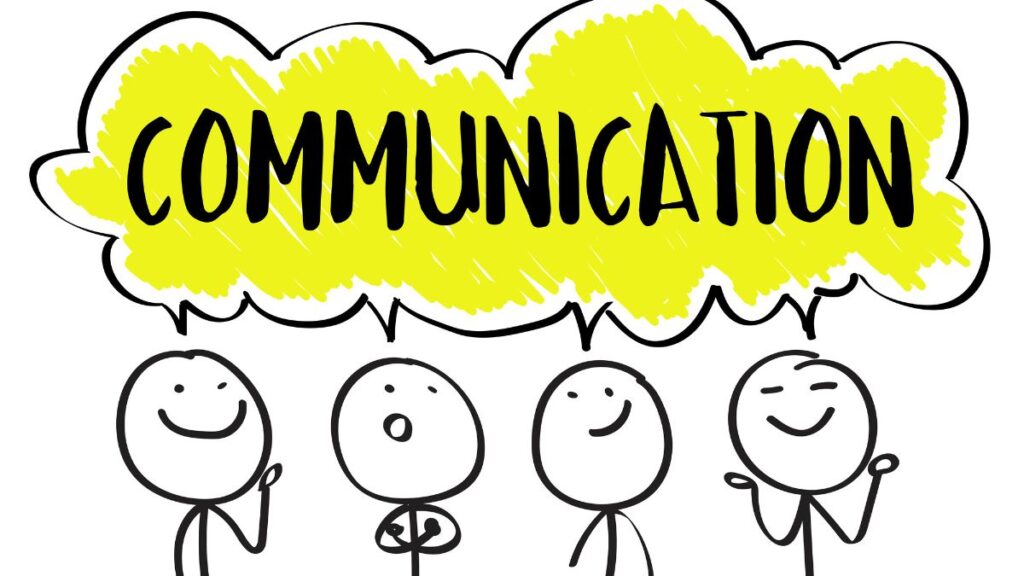Developing strong communication skills in English is crucial for success in the corporate world. Effective communication plays a significant role in various aspects, such as job interviews and workplace presentations. Your ability to express yourself clearly and confidently directly impacts your success.
However, building communication skills takes time and effort. To ensure your success, it is essential to become a fluent English speaker. Let’s explore the importance of developing English communication skills.
In today’s competitive world, after successfully clearing a written exam, you often face interviews to secure job offers. In the corporate world, companies rarely recruit solely based on talent. While showcasing your knowledge is important, you must also demonstrate your personality. This is where HR comes into play.
Mere rhetoric won’t impress interviewers; you must prove yourself through actions. Although people may discourage you based on your communication skills, consider it a challenge to bring about positive change in yourself.
It’s important to beware of unsubstantiated advice that circulates widely, particularly on the internet. Some examples include watching English films and TV shows, listening to English songs, memorizing dictionaries, or focusing solely on building an extensive English vocabulary. While these activities may have some benefits, they are not comprehensive solutions for developing effective communication skills.

To enhance your communication and writing skills, consider the following tips:
Developing effective communication skills not only enhances your chances of securing a job but also helps overcome life’s challenges. By following these tips, success will be within your reach.
- Set a Target: Setting a specific goal is crucial for effective skill development. Determine the level of fluency you aim to achieve and work towards it consistently. Building communication skills takes time and effort, so be patient and maintain belief in your abilities. Regularly evaluate your progress to identify areas for improvement and adjust your approach accordingly.
- Start Reading: Cultivating a regular reading habit is essential for expanding your language proficiency. Explore diverse reading materials such as magazines, newspapers, and novels. Take advantage of the vast resources available online and in bookstores.
Reading not only enhances your communication skills indirectly but also enriches your vocabulary and provides you with a deeper understanding of how to express your thoughts effectively. Make reading a part of your daily routine, focusing on comprehension and actively seeking opportunities for improvement. Engaging with novels that align with your interests can make the experience enjoyable and help you complete them within shorter time frames.

- Practice Mirror Speaking: If you experience anxiety or hesitation when speaking English in public, practicing in front of a mirror can be immensely beneficial. This exercise allows you to observe and refine your verbal expressions, paying attention to clarity, intonation, and body language.
Effective communication encompasses both verbal and non-verbal aspects, so make a conscious effort to express yourself clearly and confidently. Consistent practice will lead to noticeable improvements over time.
- Observe Skilled Orators: Learning from experienced and skilled speakers is a valuable strategy for enhancing your own communication abilities. Observe how they utilize gestures, stage presence, and facial expressions to engage and influence their audience. If possible, interact with these individuals to gain insights into their strategies and approaches.
Remember that learning from others complements formal education and broadens your understanding beyond what books and teachers can provide.
- Interact with New People: Actively seeking opportunities to engage with new people can significantly contribute to your overall communication development. Engaging in conversations in English with unfamiliar individuals allows you to practice your language skills in a real-world context. Seek feedback from these interactions to identify your weaknesses and areas for improvement.
By acknowledging and working on your limitations, you can continuously progress towards greater proficiency. Additionally, make an effort to communicate with friends and family members in English, gradually shifting your preference towards the language you aim to master.
- Participate in Debates and Seminars: Engaging in public speaking activities such as debates and seminars can be instrumental in boosting your confidence and fluency. Actively participating in these settings exposes you to different perspectives, challenges your critical thinking, and enhances your ability to articulate your thoughts persuasively.
Overcoming stage fright and becoming more comfortable in public speaking situations contributes to your overall communication skills, fostering self-assurance and resilience.

Additional tips:
- Don’t be afraid to make mistakes. Everyone makes mistakes when they are learning a new language. The important thing is to keep trying.
- Find a language partner. This is someone who is fluent in English and who is willing to help you practice.
- Take a class. There are many English classes available, both online and in person.
- Use online resources. There are many websites and apps that can help you improve your English skills.
By incorporating these tips into your language learning journey, you can steadily enhance your communication and writing skills. Remember that consistent practice, self-reflection, and a willingness to step out of your comfort zone are key to achieving proficiency in English communication.
Here are some additional tips that you may find helpful:
- Listen to English music. Listening to English music can help you to improve your listening comprehension and your pronunciation.
- Watch English movies and TV shows. Watching English movies and TV shows can help you to improve your listening comprehension and your vocabulary.
- Join an English club or conversation group. Joining an English club or conversation group can give you the opportunity to practice speaking English with other people.
- Volunteer your time to an English-speaking organization. Volunteering your time to an English-speaking organization can give you the opportunity to practice speaking English and to meet new people.
- Travel to an English-speaking country. Traveling to an English-speaking country can give you the opportunity to immerse yourself in the language and culture.

Developing strong English communication skills can be a challenge, but it is definitely worth the effort. By following these tips, you can improve your fluency and confidence and open up a world of new opportunities.





